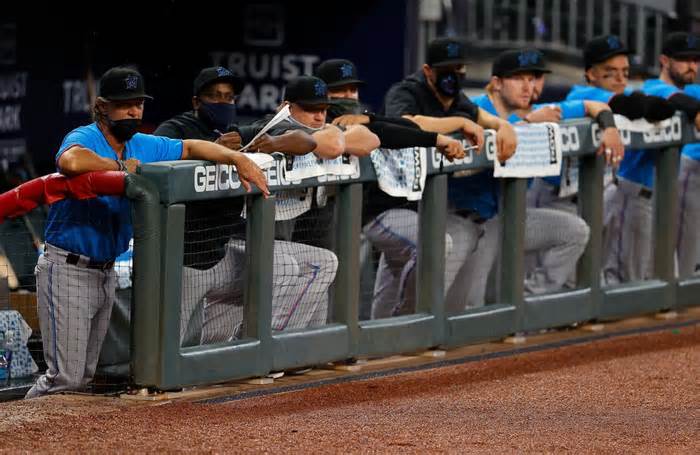Major League Baseball has made the prudent decision to directly postpone a large total of 7 ball games for the Miami Marlins from the opening match on July 27 to Sunday, August 2. They were expected to play four games combined in a series of houses opposite Baltimore Orioles, then return to Miami for a series of three games opposed to the Washington Nationals. The Marlins have been decimated staffing and moral. Currently, 17 combined players and ball coaches have tested positive for coronavirus.
The Marlins have been the subject of the alternative bureaucracy of denunciation founded on the three-game game games last weekend opposed to the Philadelphia Phillies. As they are recently quarantined and undergo additional testing in Philadelphia, a long unbound journey awaits physical condition and security. The Marlins’ resistance is being tested lately, as they have also become an uplifting story for all professional sports franchises.
Pointing the finger and blaming won’t solve this terrifying challenge for the Marlins or anything else in the major leagues. This crisis cannot be treated as an isolated incident or minimized in an overwhelming way. Unfortunately, the Marlins’ anguish has become a wonderful case study for Major League Baseball, as they are given more information about the coronavirus, how ball clubs adhere to all the additional protocols and conditions not easy on the horizon. Now you’re wondering if all 30 ball clubs will succeed with their best friend if they follow a 60-game schedule.
The opescore manual is in a sold-out position and we have not yet finished the first week of the abbreviated season. Major League Baseball knows that the coronavirus is in rhythm and could dictate the rules of the game until further notice. Even with smart manufacturing plans and comprehensive protocols, Major League Baseball is helpless because this treacherous virus dispersed ads with exceptional speed and intensity.
It would not be surprising to see ball players begin to reevaluate whether it is in their best interests to continue playing this season. They will be far more attentive to the concerns expressed by spouses, children, and other family members after witnessing what the coronavirus is currently doing to the Marlins. Ball players have already begun to express trepidation and use their voices in favor of sound judgment. The Nationals were clearly against playing ball games in Miami this upcoming weekend prior to the postponement and voted against traveling to a state that is currently a hot spot for the coronavirus.
More than ever, the voice of ball players will have to be heard, especially the friend closest of those who delight in the coronavirus. Atlanta Braves’ first baseman, Freddie Freeguy, has publicly shared his terrifying revelations fighting this nasty virus. He distrusted a frame temperature of up to 104 degrees five and the days when he questioned his own mortality.
The Marlins will not be the only professional sports franchise to suffer at the hands of the coronavirus. Rest assure, there will be additional cases and varying levels of severity within baseball and other professional sports. However, the Marlins’ current health crisis will force other ball clubs to pay closer attention to all of the details and warning signs. Sometimes, we forget or overlook the fragility of elite athletes and view them as superhuman in nature. Now, we have been introduced to a new vulnerability regardless of your athletic prowess.
Major League Baseball has a long concept of itself as a social establishment with social responsibilities. The presbound for returning to action was broad due to the importance of professional sports to the economy, especially the biggest friend baseball. It is the embodiment of convenience and normality in the midst of moments of anguish. Let’s hope baseball’s return is for those reasons in connection with television revenue, expanded playoffs or other selfish reasons.
Wayne G. McDonnell, Jr., has M.B.A.se concerned in detail about sports control schooling, sports media and schooling for nearly two decades. Previously, he a

